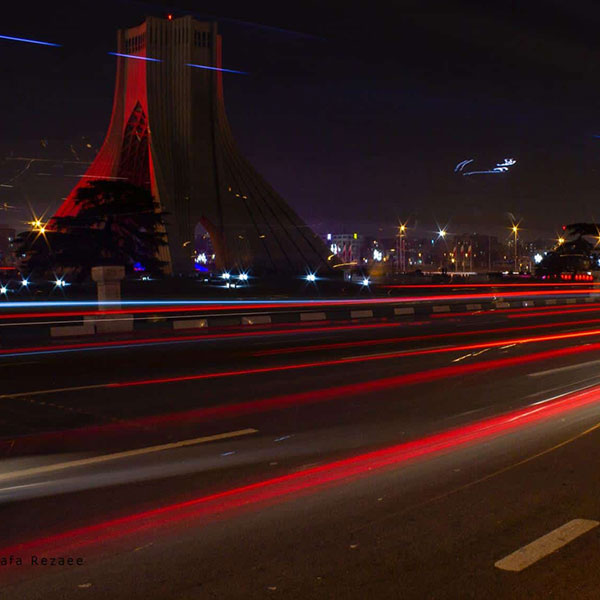


After the collapse of Soviet Union in Early 90s, South Caucasus had remained in a political and military deadlock for nearly three decades. Georgia faced secessionist movements supported by Russia within its territory and Azerbaijan and Armenia went to war over Nagorno-Karabakh territory. As a result of the war in 1990s large parts of Azeri territory were occupied by Armenia and the 1994 ceasefire resulted in a 26-year deadlock. In September-October 2020 Azerbaijan regained most of its lost territory during a short military conflict. According to the terms of the new ceasefire, brokered by Russia, local Armenians, for the time being were allowed to remain in a small Armenian populated part of Nagorno-Karabakh and Russia was tasked with peace-keeping. The result of war had some implications for Iran. First of all, the balance of power in Iran’s north-western borders changed in Azerbaijan’s favor, secondly, as a result of the Territorial changes, now, part of the route that connects Iran to the Armenian capital is controlled by Azerbaijan. Iran considers this route as a strategic one.
In late September-early October, 2021, tensions rose between Iran and Azerbaijan over Iran’s use of the above-mentioned route (Nordooz-Yerevan route). Azerbaijan believed that the destination of some Iranian trucks was the Armenian-Russian controlled Stepanakert in Nagorno-Karabakh, which is (de jure) part of the Azerbaijani territory. Azeri authorities raised their objection to Iranian counterparts and subjected Iranian trucks using the Nordooz-Yerevan route to inspection and tolls. Two Iranian truck-drivers were also arrested. Iran considered this as a hostile move, and conducted a military maneuver near its borders with Azerbaijan. In retaliation, Azerbaijan and Turkey conducted a joint maneuver near Iranian borders and the tensions were raised. Rising tensions could have serious implications for all parties. From the Iranian perspective, the majority of Iran’s trade with Russia, its strategic partner, is done via Azerbaijan. These tensions could also undermine the friendly relations between Iran and Turkey. However, both parties tried to de-escalate the tensions quickly. Iranian Authorities issued a circular on, October 18, 2021 and instructed the Iranian transportation companies to refrain from going to Stepanakert. In response, the two arrested Iranian truck drivers were released immediately.
On the other hand, Armenia and Azerbaijan have also demonstrated their eagerness to de-escalate tensions and open up their routes for trade. Turkey has suggested a 6-party co-operation in South Caucasus with participation of Iran, Turkey, Russia and the three Caucasian nations. This could result in a reopening of the rail route connecting Iran to Armenia, Azerbaijan, and Russia. This means Iran’s north-western borders might stop being in geopolitical dead-end. Such a development will have positive implications for trade in the region.
The promissory notes published by the Ministry of Economic Affairs and Finance have been used for decades. Publication of such documents on papers has caused a lot of expenses due to the need of the country to import papers and other necessary materials for publication of such documents. The coronavirus pandemic has presented an opportunity for the acceleration of the digitalization process of different aspects of economy. In order to provide fast and accurate services, cut the intermediary chains in the provision of securities, and to prevent crimes such as forgery and possible misuse of the mentioned documents, the Ministry of Economic Affairs and Finance has put the process of electronic securities on its agenda. According to the new electronic promissory notes system, electronic promissory notes are available in any place and at any time of the day or night and there is no need to pay the extra amount for each promissory note. Electronic promissory notes are now being used as a guarantee for Coronavirus facilities.
Validity and binding force of the electronic documents and their admissibility in legal proceedings have been established in the Electronic Commerce Law of the Islamic Republic of Iran passed in 2004.
Finalizing a private car transaction in Iran i.e. transfer of title to the buyer, need not be registered in Notary office; according to a new circular issued by the Attorney General on 4. September. The order is based on a ruling by Administrative Court of Justice that transferring the document issued by the traffic police, which is also known as “the green deed” must be sufficient and there is no need to register the sale agreement in the Notary office to finalize a car transaction. Previously it was a practical procedure, though not supported by law, to register a car transaction in the Notary office, after transferring the green deed. However, since the green deed is considered an official document according to the Iranian Civil Code, it should be sufficient to finalize a car transaction.
The procedure created controversy between the traffic police, and notary offices, which were responsible for closing car sale contracts and at the time, notarization made the car sale process lengthy and more costly. Since cars are not considered immovable properties, most lawyers believe that notarization of such contracts is not necessary.
The new circular by the Attorney General is to put an end to this controversy and omit the unnecessary bureaucracies once and for all.